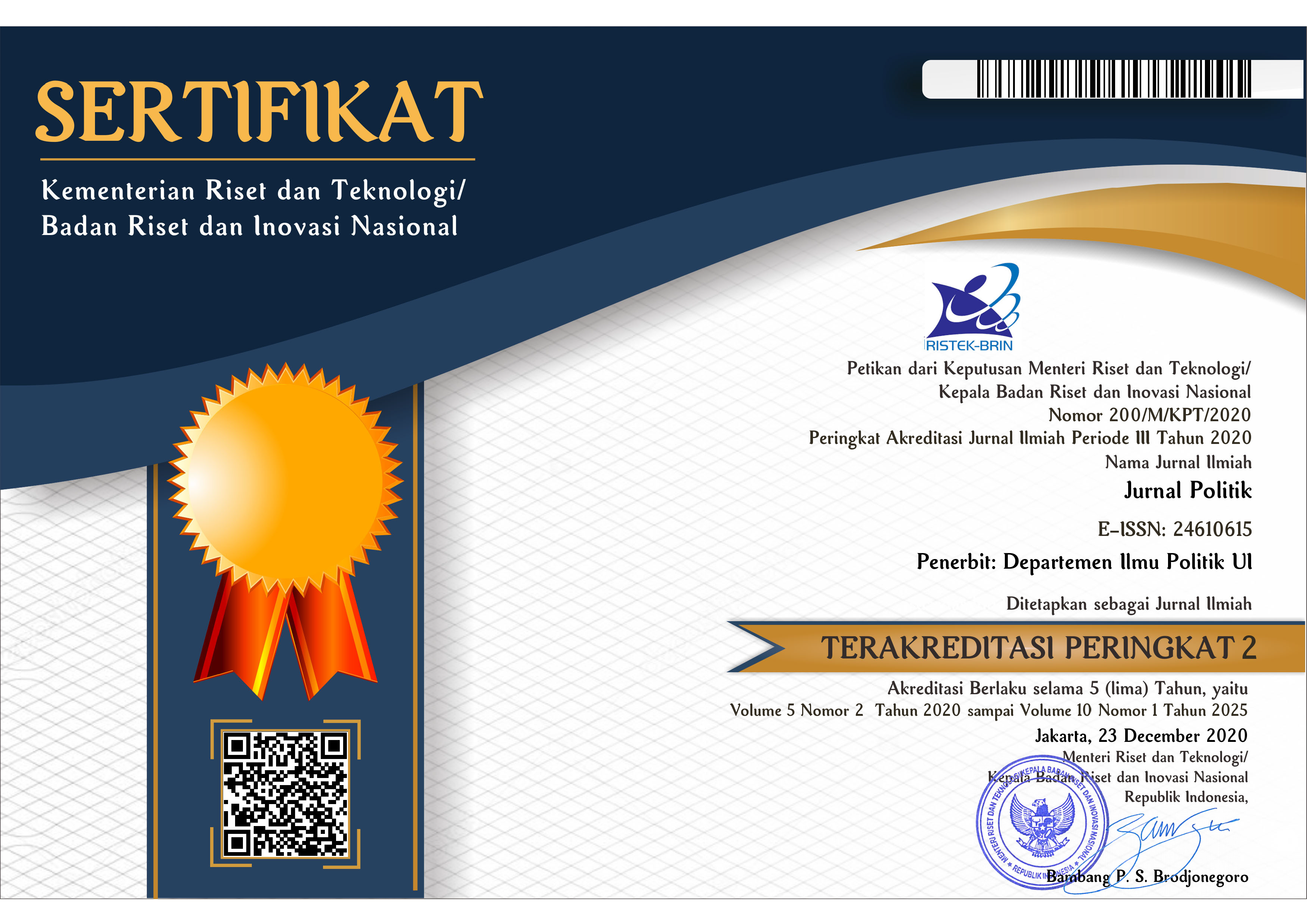Abstract
In the study of female activists in politics, the role of women seen from the perspective of women’s representation tends to revolve in political recruitments and decision making process after the elections. This perspective assumes that political process works in a more advanced level by providing channels for female activists to articulate their political interests and thus help with their future endeavors. However, this assumption can be misleading in the society that political process is dominated by political elites. This has made recruitment and policy more central and salient for publicity and render activists at the grass-root level less significant. The case in Semarang, Central Java, Indonesia has told us that female activists are made merely as vote getters in elections without a clear long-term political compensation that is beneficial for gender equality promotion. In Indonesia, women are relatively well-organized through community organizations, such as PKK (Family Empowerment and Welfare) and traditional traders’ association which are attractive to be capitalized by political candidates through their female activists as part of winning team or locally known as tim sukses. Network owned by female activists is seen crucial by politicians, political parties and candidates to reach female voters in elections. However, more than often in electoral phases, the involvement of female activists in this matter is limited merely for getting votes from their fellow female voters in their community. Although in this context, female activists at the grass-root level seem negligible, in reality, micro processes in election, as in political campaigns can be a crucial phase for female activists to strengthen their bargaining position against elites to advocates for their interests once the candidates are elected.
Recommended Citation
Alfirdaus, Laila Kholid and Nugroho, Rosihan Widi
(2019)
"Needed but Neglected: Women Activists as Vote Getters in Elections at the Local Level,"
Jurnal Politik: Vol. 5:
Iss.
1, Article 3.
DOI: 10.7454/jp.v5i1.1020
Available at:
https://scholarhub.ui.ac.id/politik/vol5/iss1/3


